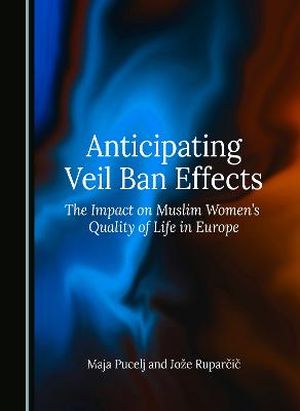
The veiling of Muslim women has become a highly debated challenge in the Western world, ranging from religious freedom, integration, and gender equality topics. Despite legally guaranteed human rights, discrimination against Muslims, especially towards veiled Muslim women, persists. This one-of-a-kind research looks at the topic from a completely new perspective as it researches the impact of a potential veiling ban on the quality of life of veiled Muslim women in Slovenia by employing different research methods, like qualitative (interviews) and quantitative methods (surveys). By drawing on critical racial feminism and pragmatic philosophy, the study evaluates the proportionality of such bans in balancing individual rights and public interests. Examining experiences from other Western countries, the research offers insights into the consequences of veiling bans on societal attitudes and integration. It aims to inform policy debates and promote a deeper understanding of the complex intersections between religion, culture, and human rights in the Western context.